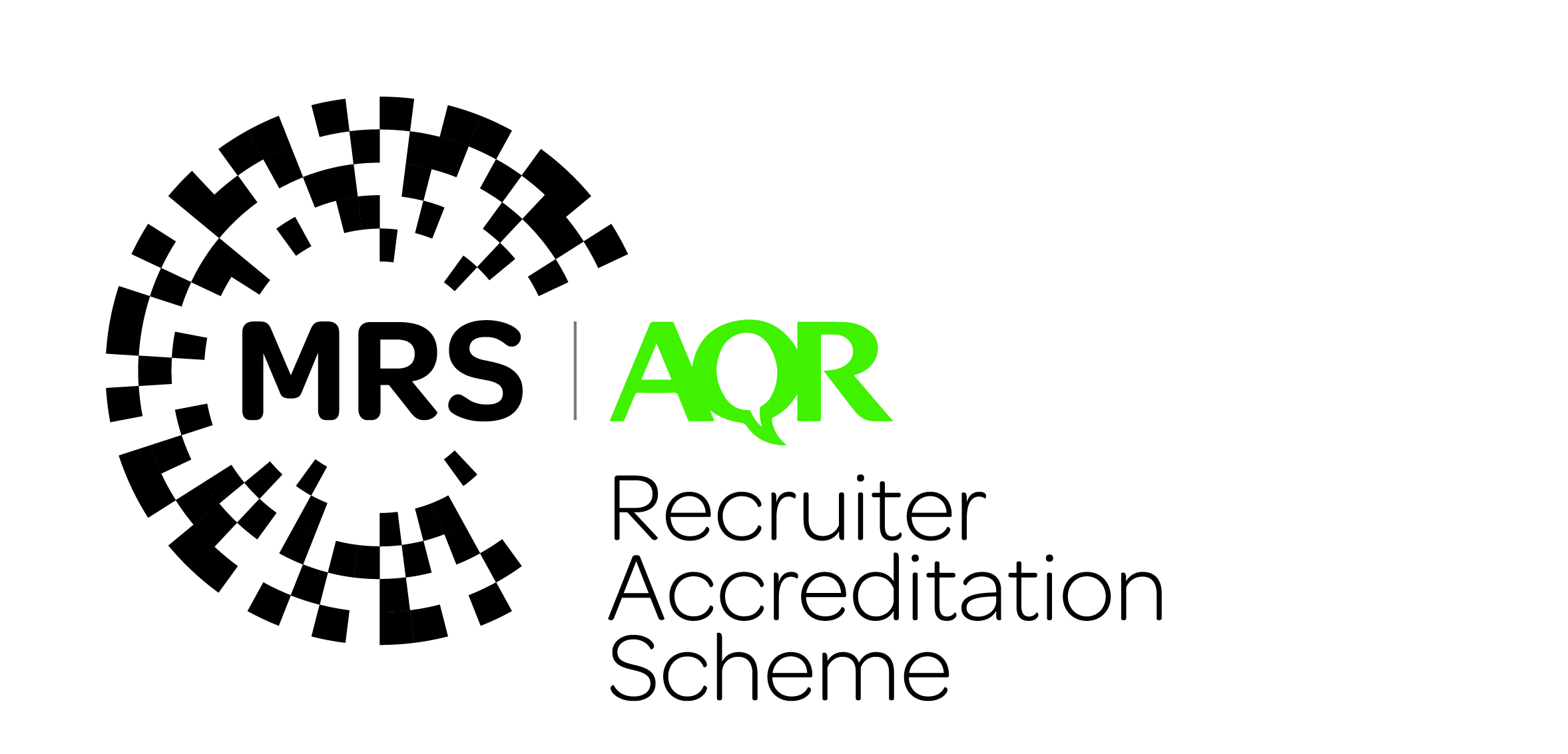All MRS websites use cookies to help us improve our services. Any data collected is anonymised. If you continue using this site without accepting cookies you may experience some performance issues. Read about our cookies here.
Background and Benefits of the Recruiter Accreditation Scheme
The Recruiter Accreditation Scheme (RAS) was developed by the Market Research Society (MRS) and the Association for Qualitative Research (AQR) to raise the profile and status of recruiters, by devising a training and accreditation scheme that recognises the knowledge, skills and competence of professional recruiters.
MRS is responsible for… | AQR is responsible for… |
|
|
|
|
|
|
|
|
|
|
For recruiters it aims to provide:
- Professional recognition
- Professional status
- A pathway into the profession for new recruiters
- Positive discrimination for accredited recruiters
- Differentiation from ‘poor’ practice and practitioners
- Improved understanding of difficulties facing recruiters
- Better qualitative recruitment briefs
For research it aims to provide:
- Access to qualified recruiter practitioners
- Assurance of quality recruitment
- Improved recruitment practices across the supply-chain
- Assurance that legal & Code requirements are being met
- Improved confidence in the research supply chain
- Better qualitative recruitment
- Re-assessment and appreciation of the difficulties facing qualitative recruiters
- from ‘poor’ practice and practitioners
- Improved understanding of difficulties facing recruiters
- Better qualitative recruitment briefs
Why was RAS created?
The working environment for qualitative research recruitment can be very challenging.
There is excellent qualitative recruitment where:
- high standards are maintained
- in quota participants are recruited
- robust procedures are adopted confirming participant identities, etc.
- strict adherence to all legal and ethical requirements is maintained
There are however, examples of bad practice exemplified by:
- repeat participants
- fake participants
- poor show levels
- biased recruitment e.g. online recruitment sites “earn cash”
- data collected and used in breach of Data Protection Act 2018
- no appreciation or understanding of MRS Code of Conduct
Often the examples of bad practice are due to stresses within the environment for recruiting participants, particularly:
Reduced/unrealistic time scales
Squeezed budgets:
- agencies with reduced margins
- recruiters who have had no real fee increase for + 10 years
Lack of time:
- for agencies to check quality
- for recruiters to meet quotas
Unrealistic/too demanding quotas encourage corner-cutting:
- by agencies and fieldwork companies
- by recruiters
Poor questionnaires:
- difficult to understand
- difficult to administer
- difficult to fulfil
Very high demand in certain areas:
- participant pool is small
- public does not perceive value of research
Low coverage of recruiters in certain areas plus an ageing recruiter profile
The aim of RAS is to raise awareness of the challenges facing qualitative recruiters, increase understanding of the issues by all those involved in the supply chain to ease some if not all of the constraints, and improve the research recruitment environment with improved recruitment undertaken as a result.


